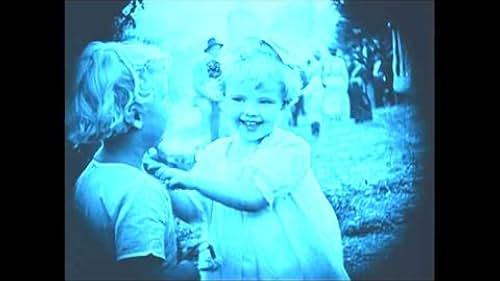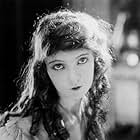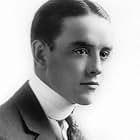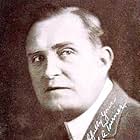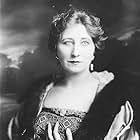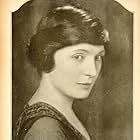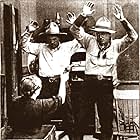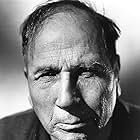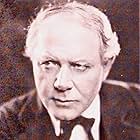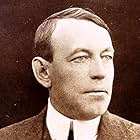IMDb RATING
7.7/10
17K
YOUR RATING
Four historical tales depict the ongoing human struggle against prejudice and inhumanity.Four historical tales depict the ongoing human struggle against prejudice and inhumanity.Four historical tales depict the ongoing human struggle against prejudice and inhumanity.
- Awards
- 2 wins
F.A. Turner
- The Dear One's Father
- (as Fred Turner)
Julia Mackley
- Uplifter
- (as Mrs. Arthur Mackley)
John P. McCarthy
- Prison Guard
- (as J.P. McCarthy)
Storyline
Did you know
- TriviaDuring filming of the battle sequences, many of the extras got so into their characters that they caused real injury to one another. At the end of one shooting day, a total of 60 injuries were treated at the production's hospital tent.
- GoofsOne of the early title cards in the Judean sequence refers to Jesus having been from "the carpenter shop in Bethlehem". Though he was born in Bethlehem, he worked with his father in a carpenter shop in Nazareth, which is why he was known as Jesus of Nazareth.
- Quotes
Intertitle: When women cease to attract men, they often turn to reform as a second option.
- Crazy creditsConstance Talmadge is credited as 'Georgia Pearce' for her performance as Marguerite de Valois in the French Story. She is credited under her own name in the role of The Mountain Girl in the Babylonian Story.
- Alternate versionsThe movie was officially restored in 1989 by Kevin Brownlow and David Gill for Thames Television. It was transferred from the best available 35mm materials, color-tinted per D.W. Griffith's intent, and contains a digitally recorded orchestral score by Carl Davis. This 176-minute version was released on video worldwide, but has never been telecast in the U.S.
- ConnectionsEdited into The Fall of Babylon (1919)
Featured review
In 1915, D.W. Griffith's gave birth to modern cinema with "The Birth of a Nation", a giant leap that proved the remaining skeptics that the 20th century wouldn't do without the reel, that there was a time for Chaplin's gesticulations and a time for serious storytelling.
Of course, Chaplin's contribution is more valuable because he understood the universality of cinema more than any other filmmaker, let alone Griffith who made his film culminate with the glorification of the KKK. ¨People from all over the world would rather relate to the little tramp than any Griffith's character, but as I said in my "Birth of a Nation" review, without that seminal film, there wouldn't even be movies to contradict it.
And D.W. Griffith was actually the first to do so by making a humanistic anthology named "Intolerance: Love's Struggle Through the Ages", a three-hour epic relating four separate stories set at different historical times, but all converging toward the same hymn to intolerance, or denunciation of intolerance's effect through four major storylines: the fall of Babylon, the crucifixion of the Christ, the Bartholomew Day massacre and a contemporary tale with odd modern resonances. The four stories overlap throughout the film, punctuated with the same leitmotif of a mother "endless rocking the cradle", as to suggest the timeless and universal importance of the film.
The mother is played by an unrecognizable Lillian Gish but it's not exactly a film that invites you to admire acting, the project is so big, so ambitious on a simple intellectual level that it transcends every cinematic notion. It is really a unique case described as the only cinematic fugue (a word used for music), one of these films so dizzying in their grandeur that you want to focus on the achievements rather than the shortcomings, just like "Gone With the Wind" or more recently "Avatar". Each of the four stories would have been great and cinematically appealing in its own right, Griffith dares to tell the four of them using his trademark instinct for editing. Technically, it works.
And while I'm not surprised that he could pull such a stunt since he had already pushed the envelope in 1915, bmaking this "Intolerance" only one year after "The Birth of Nation" is baffling, especially since it was meant as an answer to the backlash he suffered from, it's obvious it wasn't pre-planned, so how he could make this in less than a year is extraordinary. I can't imagine how he got all these extras (three thousands), the recreations of ancient Babylon, of 16th century France, and still have time for a real story, but maybe that's revealing how eager he was to show that he wasn't the bigoted monster everyone accused him of, as if the scale of his sincerity had to be measured in terms of cinematic zeal. That the film flopped can even play as a sort of redemption in Griffith's professional arc.
But after the first hour, we kind of get the big picture and we understand that Griffith tells it like he means it. It works so well that the American Film Institute replaced the "Birth of a Nation" from the AFI Top 100 with "Intolerance" in the 10th anniversary update. But after watching the two of them, I believe they both belonged to the list as they're the two ideological sides of the same coin. But if one had to be kept, it would be the infamous rather than the famous, if only because the former is more 'enjoyable' in the sense that there's never a dull moment where you feel tempted to skip to another part. "Intolerance" had one titular key word: struggle, I struggled to get to the end, and even then, I had to watch it again because I couldn't stay focused. Indeed, what a challenging movie patience-wise!
This is a real orgy of set decorations that kind of loses its appeal near the second act, and while the first modern story is interesting because you can tell Griffith wanted to highlight the hypocrisy of our world's virtue posers, who try to make up for the very troubles they cause and use money for the most lamentable schemes, it might be too demanding to plug your mind to so many different stories. And when the climax starts with its collection of outbursts of violence, I felt grateful for finally rewarding my patience than enjoying the thrills themselves, especially since it doesn't hold up as well as the climactic sequence of "The Birth of a Nation". Or maybe we lost the attention span when it comes to silent movies, but there must be a reason the film flopped even at its time, maybe the abundance of notes and cardboards that makes the film look like a literary more than visual experience?
I guess "Intolerance" can be enjoyed sequence by sequence, by making as many halts as possible in that epic journey, but it's difficult to render a negative judgment for such a heavy loaded film. For my part, I'm glad I could finally watch and review all the movies from the American Film Institute's Top 100 and I appreciate its personal aspect in Griffith's career. Perhaps what the film does the best is to say more about the man than the director. His insistence on never giving names to his characters ("The Boy", "The Dear Guy"...) calling a mobster a "Musketeer" and all that vocabulary reveal his traditional and sentimental view of America, and maybe the rest of the world.
That's might be Griffith's more ironic trait, so modern on the field of technical film-making yet so old-fashioned in his vision, he's one hell of a storyteller and he handles the universal and historical approach of his film like a master, but when it comes to his personal vision, he struck me as the illustration of his own metaphor, like a good mother-figure endlessly rocking our cradle.
Of course, Chaplin's contribution is more valuable because he understood the universality of cinema more than any other filmmaker, let alone Griffith who made his film culminate with the glorification of the KKK. ¨People from all over the world would rather relate to the little tramp than any Griffith's character, but as I said in my "Birth of a Nation" review, without that seminal film, there wouldn't even be movies to contradict it.
And D.W. Griffith was actually the first to do so by making a humanistic anthology named "Intolerance: Love's Struggle Through the Ages", a three-hour epic relating four separate stories set at different historical times, but all converging toward the same hymn to intolerance, or denunciation of intolerance's effect through four major storylines: the fall of Babylon, the crucifixion of the Christ, the Bartholomew Day massacre and a contemporary tale with odd modern resonances. The four stories overlap throughout the film, punctuated with the same leitmotif of a mother "endless rocking the cradle", as to suggest the timeless and universal importance of the film.
The mother is played by an unrecognizable Lillian Gish but it's not exactly a film that invites you to admire acting, the project is so big, so ambitious on a simple intellectual level that it transcends every cinematic notion. It is really a unique case described as the only cinematic fugue (a word used for music), one of these films so dizzying in their grandeur that you want to focus on the achievements rather than the shortcomings, just like "Gone With the Wind" or more recently "Avatar". Each of the four stories would have been great and cinematically appealing in its own right, Griffith dares to tell the four of them using his trademark instinct for editing. Technically, it works.
And while I'm not surprised that he could pull such a stunt since he had already pushed the envelope in 1915, bmaking this "Intolerance" only one year after "The Birth of Nation" is baffling, especially since it was meant as an answer to the backlash he suffered from, it's obvious it wasn't pre-planned, so how he could make this in less than a year is extraordinary. I can't imagine how he got all these extras (three thousands), the recreations of ancient Babylon, of 16th century France, and still have time for a real story, but maybe that's revealing how eager he was to show that he wasn't the bigoted monster everyone accused him of, as if the scale of his sincerity had to be measured in terms of cinematic zeal. That the film flopped can even play as a sort of redemption in Griffith's professional arc.
But after the first hour, we kind of get the big picture and we understand that Griffith tells it like he means it. It works so well that the American Film Institute replaced the "Birth of a Nation" from the AFI Top 100 with "Intolerance" in the 10th anniversary update. But after watching the two of them, I believe they both belonged to the list as they're the two ideological sides of the same coin. But if one had to be kept, it would be the infamous rather than the famous, if only because the former is more 'enjoyable' in the sense that there's never a dull moment where you feel tempted to skip to another part. "Intolerance" had one titular key word: struggle, I struggled to get to the end, and even then, I had to watch it again because I couldn't stay focused. Indeed, what a challenging movie patience-wise!
This is a real orgy of set decorations that kind of loses its appeal near the second act, and while the first modern story is interesting because you can tell Griffith wanted to highlight the hypocrisy of our world's virtue posers, who try to make up for the very troubles they cause and use money for the most lamentable schemes, it might be too demanding to plug your mind to so many different stories. And when the climax starts with its collection of outbursts of violence, I felt grateful for finally rewarding my patience than enjoying the thrills themselves, especially since it doesn't hold up as well as the climactic sequence of "The Birth of a Nation". Or maybe we lost the attention span when it comes to silent movies, but there must be a reason the film flopped even at its time, maybe the abundance of notes and cardboards that makes the film look like a literary more than visual experience?
I guess "Intolerance" can be enjoyed sequence by sequence, by making as many halts as possible in that epic journey, but it's difficult to render a negative judgment for such a heavy loaded film. For my part, I'm glad I could finally watch and review all the movies from the American Film Institute's Top 100 and I appreciate its personal aspect in Griffith's career. Perhaps what the film does the best is to say more about the man than the director. His insistence on never giving names to his characters ("The Boy", "The Dear Guy"...) calling a mobster a "Musketeer" and all that vocabulary reveal his traditional and sentimental view of America, and maybe the rest of the world.
That's might be Griffith's more ironic trait, so modern on the field of technical film-making yet so old-fashioned in his vision, he's one hell of a storyteller and he handles the universal and historical approach of his film like a master, but when it comes to his personal vision, he struck me as the illustration of his own metaphor, like a good mother-figure endlessly rocking our cradle.
- ElMaruecan82
- Jan 14, 2018
- Permalink
- How long is Intolerance?Powered by Alexa
Details
- Release date
- Country of origin
- Language
- Also known as
- Intolerance: A Sun-Play of the Ages
- Filming locations
- Silver Lake, Los Angeles, California, USA(Babylon set)
- Production company
- See more company credits at IMDbPro
Box office
- Budget
- $385,907 (estimated)
- Runtime2 hours 43 minutes
- Sound mix
- Aspect ratio
- 1.33 : 1
Contribute to this page
Suggest an edit or add missing content


